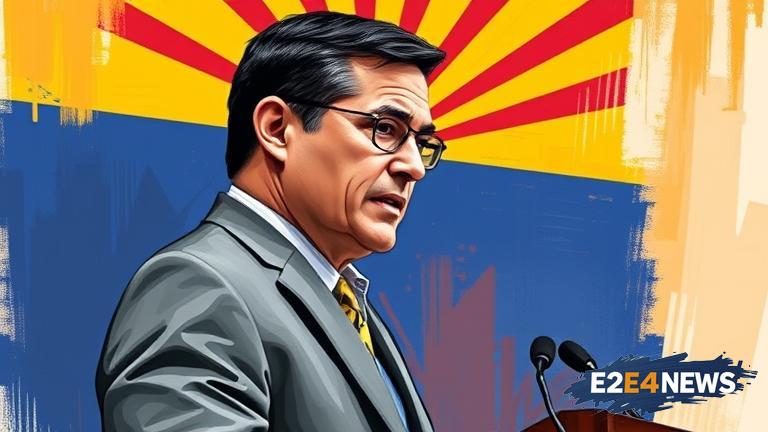Arizona Representative Hamadeh has introduced a bill to reform the Uniformed and Overseas Citizens Absentee Voting Act (UOCAVA), a federal law that protects the voting rights of military and overseas voters. The proposed bill aims to modernize the UOCAVA and ensure that these voters can exercise their right to vote in federal elections. The current law has been in place since 1986 and has undergone several amendments over the years. However, with the advancement of technology and changes in voting systems, there is a need to reform the law to make it more effective and efficient. The bill introduced by Representative Hamadeh seeks to address the challenges faced by military and overseas voters in casting their ballots. One of the key provisions of the bill is to require states to provide electronic transmission of ballots to these voters. This will enable them to receive and return their ballots more quickly and efficiently. The bill also proposes to extend the deadline for states to transmit ballots to military and overseas voters. Additionally, the bill aims to improve the accessibility of voting systems for these voters, including those with disabilities. The proposed legislation also seeks to enhance the security and integrity of the voting process. It requires states to implement robust security measures to protect the integrity of the ballots and the voting process. The bill also proposes to establish a national database to track the voting history of military and overseas voters. This will help to ensure that these voters are able to cast their ballots and have their votes counted. The introduction of the bill has been welcomed by voting rights advocates, who see it as a step in the right direction. They argue that the current law is outdated and does not provide adequate protections for military and overseas voters. The bill has also been endorsed by several military and veterans’ organizations, who see it as a way to ensure that the voting rights of military personnel and their families are protected. However, some critics have raised concerns about the potential impact of the bill on the security and integrity of the voting process. They argue that the electronic transmission of ballots could increase the risk of cyber attacks and voter fraud. Despite these concerns, the bill is seen as a positive step towards reforming the UOCAVA and safeguarding the voting rights of military and overseas voters. The bill is currently pending in Congress and is expected to undergo further debate and discussion. If passed, the bill will have a significant impact on the voting rights of military and overseas voters. It will ensure that they are able to exercise their right to vote in federal elections and have their votes counted. The bill will also help to modernize the UOCAVA and make it more effective and efficient. Overall, the introduction of the bill is a welcome development and a step in the right direction towards safeguarding the voting rights of military and overseas voters. The bill has the potential to make a significant difference in the lives of these voters and ensure that they are able to participate in the democratic process. With the advancement of technology and changes in voting systems, it is essential to reform the UOCAVA to make it more effective and efficient. The bill introduced by Representative Hamadeh is a positive step towards achieving this goal. The proposed legislation has the potential to improve the accessibility and security of the voting process for military and overseas voters. It will also help to ensure that these voters are able to cast their ballots and have their votes counted. The introduction of the bill is a significant development and a step in the right direction towards safeguarding the voting rights of military and overseas voters.
